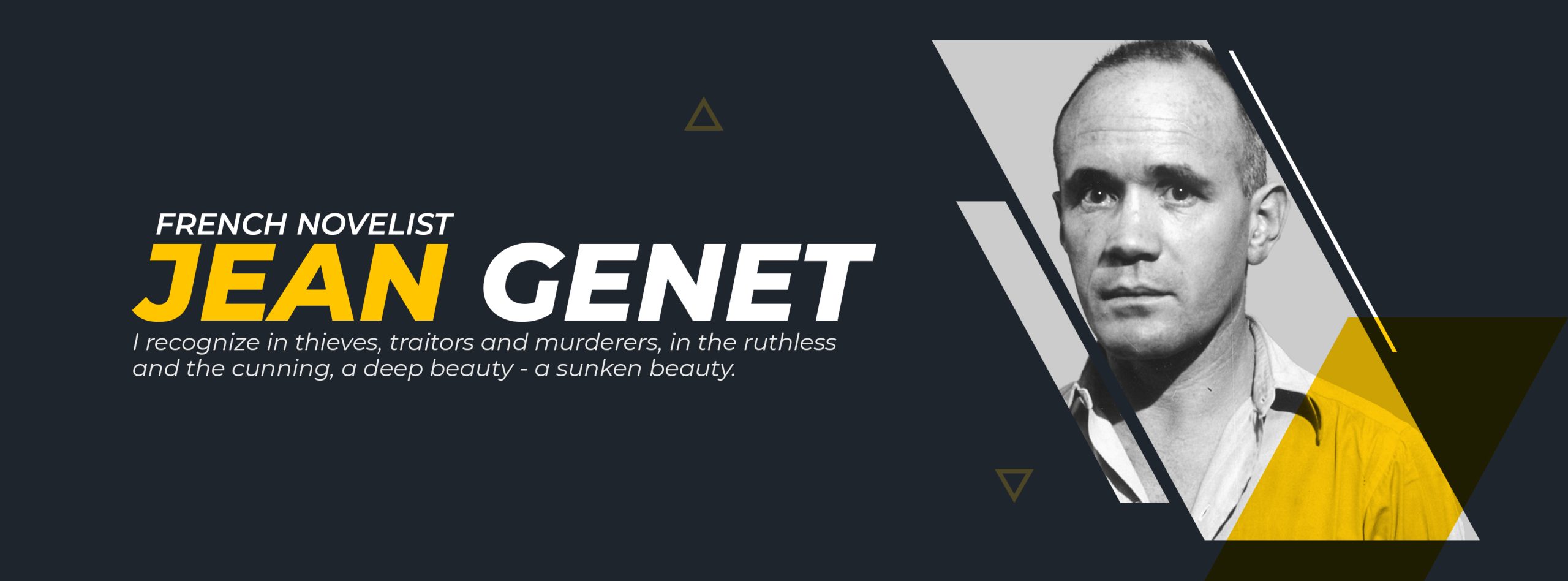Top 10 most inspiring quotes by Jean Genet
- Worse than not realizing the dreams of your youth would be to have been young and never dreamed at all.
- A man must dream a long time in order to act with grandeur, and dreaming is nursed in darkness.
- My heart’s in my hand, and my hand is pierced, and my hand’s in the bag, and the bag is shut, and my heart is caught.
- Anyone who hasn’t experienced the ecstasy of betrayal knows nothing of ecstasy at all.
- If we behave like those on the other side, then we are the other side. Instead of changing the world, all we’ll achieve is a reflection of the one we want to destroy.
- Limited by the world, which I oppose, jagged by it, I shall be all the more handsome and sparkling as the angles which wound me and give me shape are more acute and the jagging more cruel.
- Erotic play discloses a nameless world which is revealed by the nocturnal language of lovers. Such language is not written down. It is whispered into the ear at night in a hoarse voice. At dawn it is forgotten.
- When I got to the street, I walked boldly. But I was always accompanied by an agonizing thought: the fear that honest people may be thieves who have chosen a cleverer and safer way of stealing.
- Added to the moral solitude of the murderer comes the solitude of the artist, which can acknowledge no authority, save that of another artist.
- I recognize in thieves, traitors and murderers, in the ruthless and the cunning, a deep beauty – a sunken beauty.

Jean Genet (1910-1986) was a French novelist, playwright, and political activist. He is best known for his works that explore themes of crime, homosexuality, and social marginalization. Genet’s life was marked by a troubled childhood and a life of crime, which significantly influenced his writing.
Genet was born on December 19, 1910, in Paris, France. He was abandoned by his mother at a young age and was raised in various foster homes and institutions. Genet engaged in criminal activities from an early age, including theft and prostitution, which led to numerous arrests and incarcerations throughout his life.
During his time in prison, Genet began writing and gained recognition for his works, which often depicted the lives of criminals and outcasts. His first novel, “Our Lady of the Flowers” (1943), was written while he was in prison and explored themes of homosexuality and transgression. It was followed by “Miracle of the Rose” (1946), which drew on his experiences in the penal system.
Genet’s plays, such as “The Maids” (1947) and “The Balcony” (1956), brought him further acclaim. These works delved into themes of power, desire, and identity, often challenging societal norms and conventions. Genet’s writing style was characterized by poetic language and a provocative exploration of taboo subjects.
In addition to his literary career, Genet was involved in political activism. He aligned himself with leftist and revolutionary causes, supporting movements such as the Black Panthers and the Palestinian struggle for self-determination. His political engagement informed his later works, including his essay “Prisoner of Love” (1986), which reflected on his experiences in the Palestinian refugee camps.
Jean Genet’s contributions to literature and his subversive exploration of identity and social norms have had a significant impact on subsequent generations of writers and artists. He passed away on April 15, 1986, in Paris, leaving behind a complex and influential body of work.
👉Listen to the best music from all over the world at www.liveonlineradio.net #Jean_Genet #quotes #FM #Online_radio #radio #live_online_radio #live #world_radio





